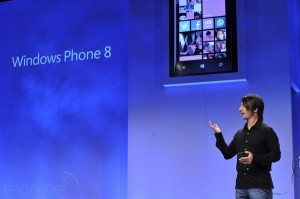In a September survey of 599 C-level executives and IT decision-makers in 19 countries, managed services provider Avanade found that 61 percent of companies now report that employees are using personal devices in the workplace. More than half of employees (54 percent) are still using only smartphones for basic work functions like reading email, Web sites and calendaring.
The story is different with tablets. Avanade found 33 percent of companies say that the majority of employees use tablets for basic work functions, but 33 percent also say the majority of their employees use tablets for advanced business uses with enterprise applications like CRM, project management, content creation and data analysis.
Avanade’s Mick Slattery, executive vice president of Global Line Services, says he believes the release of Windows 8 and Windows Phone 8 will continue to drive enterprise adoption of advanced uses of mobility.
“What the research shows is how ingrained tablets have become in the workplace in less than three years since they hit mainstream,” Slattery says. “Companies are recognising the business value tablets can offer and creating solutions and enabling access to business systems to capitalise on the opportunity. With the release of Microsoft Windows 8 and Windows Phone 8, there will be a new wave of enterprise-ready mobility solutions entering the workplace as employees increasingly use their personal tablets and smartphones to get their jobs done more effectively.”
“It’s about how do I use a device for changing a business process rather than just allowing you to get email all the time,” says Dan O’Hara, Vice President of Mobility at Avanade.
Using Mobile to Transform Business Processes
Healthcare, financial services and retail are at the forefront of using mobile to transform their businesses, O’Hara says.
“The biggest areas are really customer engagement,” he explains. “A lot of times, people are handing brochures and that sort of thing to customers. Now they’re using tablets instead, and the tablet really starts to engage people.”
For instance, he notes, car dealers can use a tablet to bring a car configuration app on a test drive to walk a potential buyer through options and colours. In retail, salespeople can bring the register to the customer, rather than the other way around. And the transformations can go farther as well.
O’Hara notes that field technicians at some cable operators and telecommunications companies are now taking tablets on field service calls to give them the opportunity to up-sell customers.
“Field technicians are always in our houses,” O’Hara says. “They’re good at installing services, but what they don’t always do a good job of is up-sell. Can the field technician take in the tablet to not only complete the order, but also show them different options on the tablet? Your field technicians aren’t necessarily the best salespeople for your company, but they do have that direct customer interaction. We’re seeing a number of scenarios where companies can turn field technicians into an enabler of sales rather than turning them into a salesperson.”
“To take advantage of the value mobility brings to employees and customers, companies are redesigning the building blocks of their business,” Slattery adds. “Avanade’s research reveals these leaders are modifying business processes like sales and marketing, and roles inside companies, such as HR staff, to make better use of mobile devices and other consumer technologies. Our work with customers and research studies show early signs that these changes are making an impact on revenues, profits and customer service.”
More Than BYOD: Windows 8 May Spur Corporate-Owned Devices
And it’s not just about bring-your-own-device (BYOD). O’Hara notes that Windows 8 is likely to drive a new wave of investment in corporate-owned devices as CIOs seek to standardise on a secure platform that can be managed with the same tools used to manage corporate-owned PCs.
“CIOs are really looking for security, manageability and choice in mobile devices,” O’Hara says. “There’s a lot of security and trust that CIOs are seeing from the Windows 8 Intel-based devices. And a lot of vendors are coming out with different devices and form factors with Windows 8; hardened form factors, retail form factors.”
And that, O’Hara says, will be a big selling point for corporate-owned Windows 8 devices, as vendors will be able to customise the devices based on the specific needs of an organisation. For instance, some organisations will need tablets that can be ruggedised to withstand being dropped on a warehouse floor. In some organisations, a tablet may work 16 to 24 hours a day, passed to different employees as they take their shifts. Those organisations need tablets with swappable batteries.
“CIOs want to buy the right device,” O’Hara says. “It’s very difficult for a CIO to say, ‘I’m going to support four vendors and three operating systems.’ They are looking at standardising. If they’re going to put a device in their field service technicians’ hands, they want 10,000 of the same device.”






